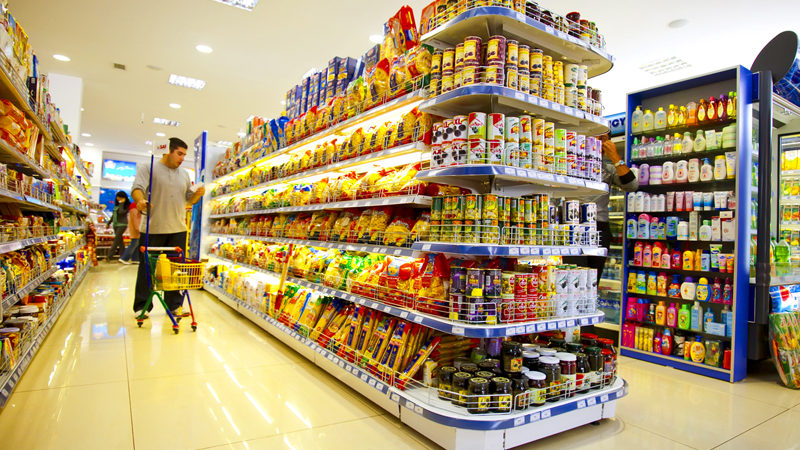‘A lot of manufacturers will probably just give up on the European market.’

In February this year, the UK and EU signed the post-Brexit Windsor Framework agreement, amending the original Northern Ireland Protocol. When his new deal was signed, Rishi Sunak boasted it would deliver ‘smooth flowing trade within the whole of the United Kingdom.’
The deal came into effect in October. Two months later and business leaders are warning that hundreds of millions of pounds in trade is now at risk, and that plans for the UK-wide roll-out of legislative conditions extend Brussels’ requirements.
Since October, all meat and certain dairy products coming from the UK to be sold in Northern Ireland need to be stamped with ‘not for EU’ labels, so that goods are not moved onto the Republic of Ireland. However, under the trade agreement, from October 2024, all meat and dairy products sold across Britain will be required to have the labels, regardless of whether they were intended to be sent to Northern Ireland or not. As of July 2025, the labels will be a requirement for all UK food products and will be applied to food that is both produced in the UK and imported.
Food export leaders and businesses are warning that EU exports could plummet as a result of the additional costs and burdens of making separate production runs for European and UK markets.
Sean Ramsden, CEO of the food export organisation, Ramsden International, and director of the Food and Drink Exporters Association, described the new rules as “absolutely cataclysmic for food exporters.”
Talking to POLITICO, Ramsden said eventually all the products he is supplied with by partner Co-op “will be labelled ‘not for EU,’ which means we can’t export them to the EU.”
He continued that larger manufacturers may find the new system easier to comply with, but the changes could prove too expensive for smaller businesses.
“A lot of manufacturers will probably just give up on the European market,” he said. “It seems an inconsequential thing to say, ‘put it onto the packaging,’ but in practice it means changing production runs. Manufacturers are saying this is crazy because they don’t want to start doing additional production runs.”
Ramsden spoke of the immediate threat the new system presents to manufacturers, with some already using the labelling rules in preparation for it coming into effect. Consequently, Ramsden’s company is having to do manual checks on everything. He warned that an additional unintended consequence of the system will be that non-EU consumers will be put off by the ‘not for EU’ labels.
“If we export to other markets, what are the consumers going to think when they see ‘not for EU’ on the packaging? They are going to question whether it’s safe,” he added.
The Food and Drink Federation (FDF) shares similar concerns. Its director, Balwinder Dhoot, recently warned that the rolling out of the labelling system would “run into hundreds of millions of pounds a year across the industry.”
“It generates a risk for hundreds of millions, if not billions, of pounds’ worth of exports. That is an unnecessary domestic policy. You cannot have a trade policy that is trying to promote exports on one hand, and then undermine that with domestic policy on the other,” Dhoot told MPs in November.
Gabrielle Pickard-Whitehead is a contributing editor to Left Foot Forward
To reach hundreds of thousands of new readers we need to grow our donor base substantially.
That's why in 2024, we are seeking to generate 150 additional regular donors to support Left Foot Forward's work.
We still need another 117 people to donate to hit the target. You can help. Donate today.



